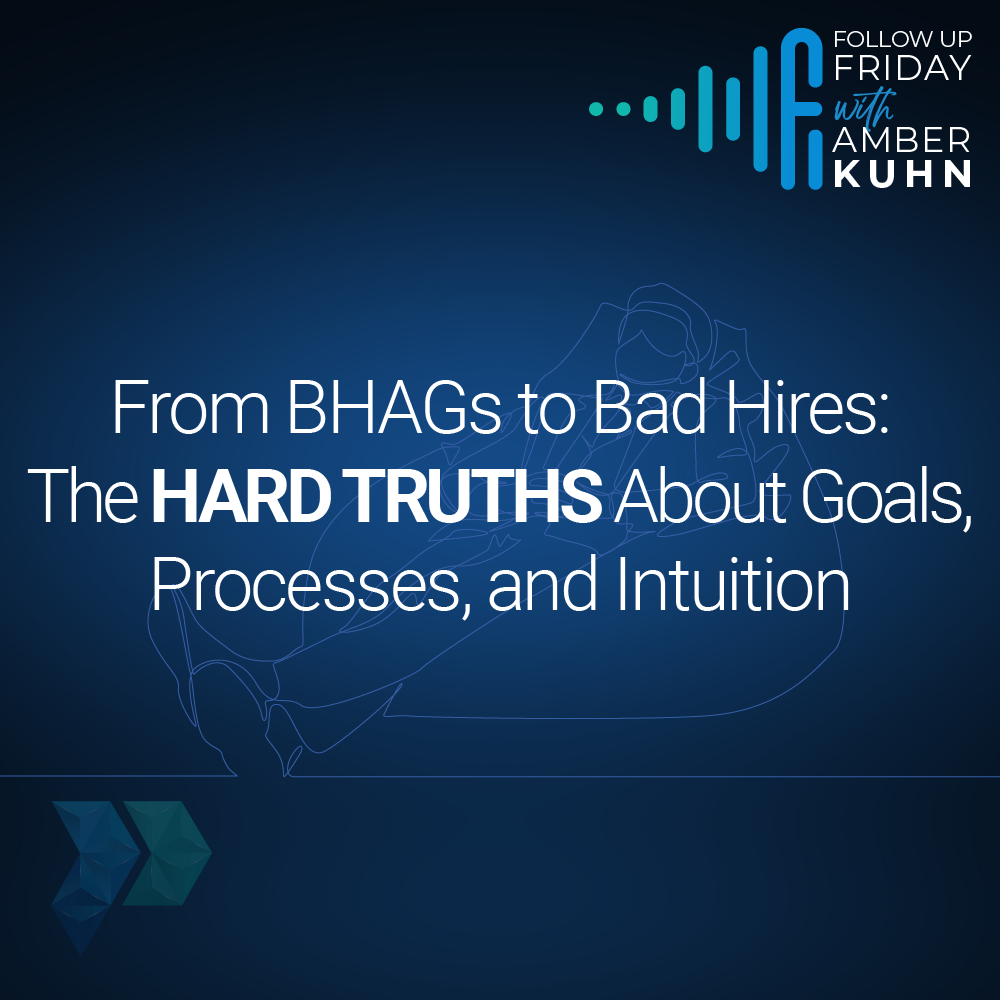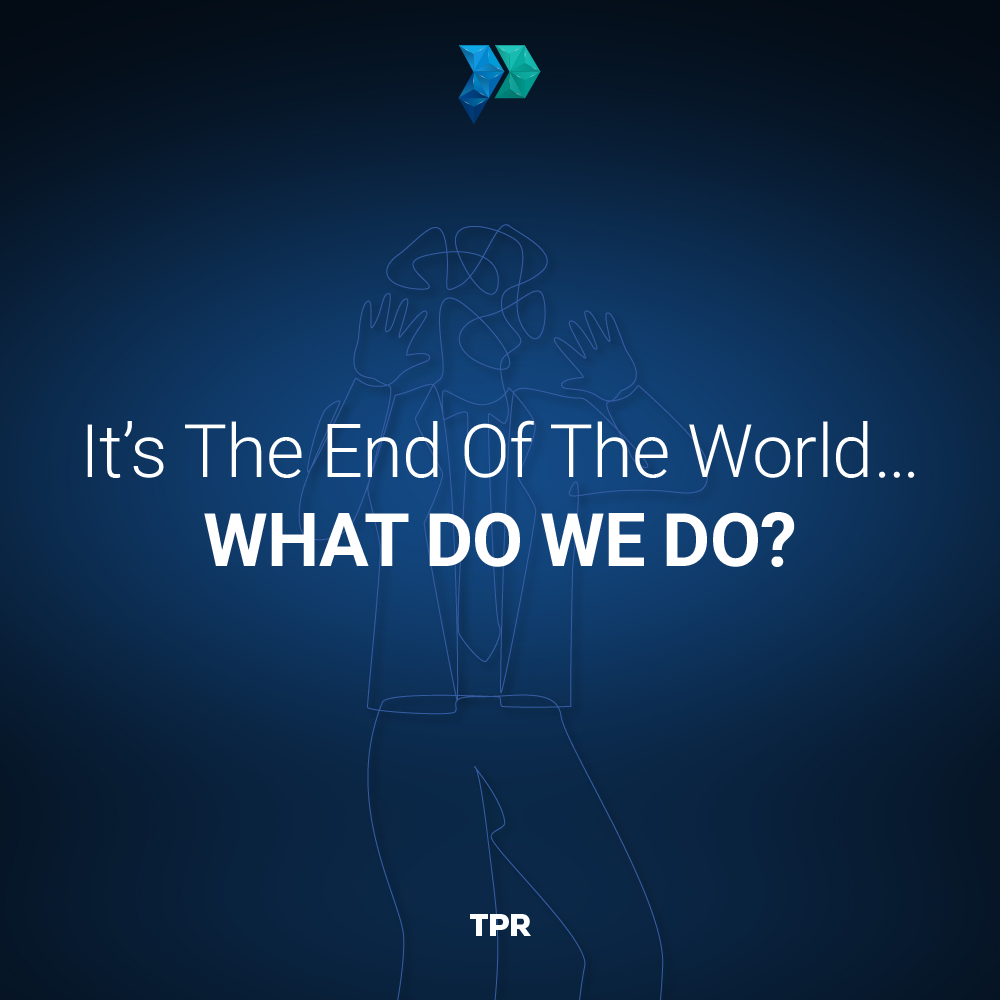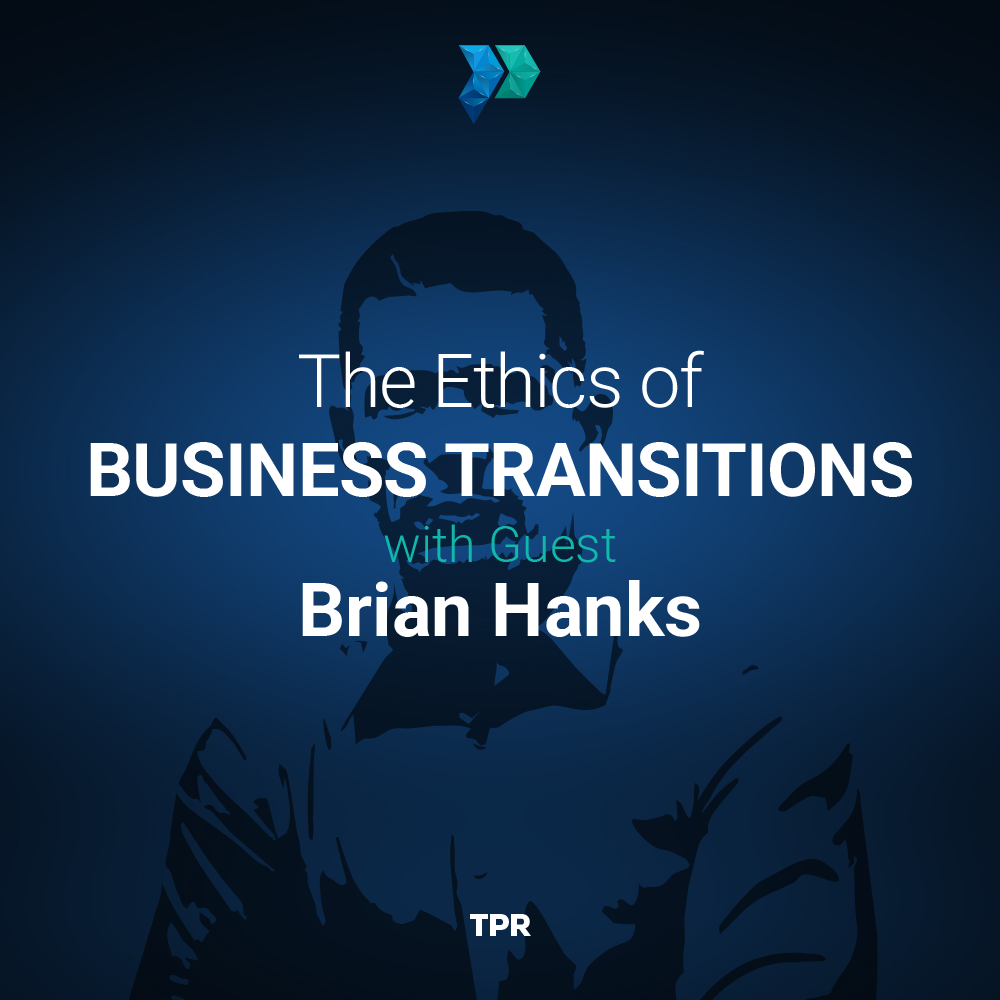What You'll Learn In Today's Episode:
- Set big, legitimate goals and be willing to do the uncomfortable work to achieve them.
- Have integrity and honesty in recognizing weaknesses and learning from failures.
- Establish a process and track progress to stay on track with goals.
- Listen to intuition and evaluate past experiences in decision-making.
- Take hiring seriously and ensure job descriptions and onboarding processes are well-defined.
- Address toxic employees promptly and consider the impact on the team and clients.
In this recap episode, Amber is covering this week’s highlights. On Monday, Matt and Micah explored the stark differences between advisors who smash their Big Hairy Audacious Goals (BHAGs) and those who remain stuck. Both groups start with excitement, but only those who embrace hard work and stick to a rigorous process succeed. The importance of having a consistent process was a major point. Believing that an external factor will magically change your situation is futile and avoidance isn’t an option for success.
On Thursday, Jamie dove into intuition in business decisions, particularly in team management. She explained deductive and inductive reasoning, linking intuition to the latter. Jamie advised trusting your gut, especially when it signals someone is a poor fit. If someone consistently feels off and you’re waiting for inevitable conflict, it’s time to let them go for everyone’s benefit.
Resources In Today's Episode:
Read the Transcript Below:
Amber Kuhn
Hello TPR nation. This is Amber Kuhn with your Follow up Friday, where I’ll be recapping this week’s episode highlights and action items. On Monday, Matt and Micah were talking about two groups of advisors, those who have huge goals, those big, hairy, audacious goals, and end up destroying them, and those who, after setting their big goal, just end up stuck in the same spot. They pointed out that when it comes to starting these goals, both such advisors are excited and ready to get things done, but ultimately it comes down to work and being willing to do the hard things that most other people aren’t. And for those who are successful, it does end up impacting your social circle in peer groups, you’re constantly changing that group in order to find people to bring you up to a new level. The guys wanted to talk about the difference between a big, legitimate goal and pure fantasy. A fantasy is just something you dream about. A goal is something that every week, you’re doing the uncomfortable work and making progress towards it. They said that the common theme of successful advisors is that they have integrity and honesty in what they’re missing. They know what their weaknesses are and are willing to do the work to fix it if they don’t hit their goal. They’re learning from that to see what they can do to improve. Matt and Micah spent some time talking about processes and how you can’t think that an external factor is going to change your situation. You need a process you can follow, stick to it and do the work. An example they shared with us is going through your prospect tracker weekly with your team. It doesn’t mean the meeting for this is fine. Micah said this is a place where advisors may try to avoid things, because it can just be a reminder of where you’re failing, but you can’t just ignore it. Well, you can, but that’s not going to make you successful. You have to be willing to do the uncomfortable work and remember head trash isn’t an excuse for not doing the activity required to be successful. Another thing that the guys talked about that distinguishes a fantasy versus a goal is that there’s time blocked out in your calendar every week to make something a reality. And they reminded listeners about Dan Sullivan’s quote that you can never find time. You can only make time. The guys recommended that you go through to see where you’re deficient, and they define that as when you’re not on track to meet your business plan, because all of those things need to be measurable and trackable. So if you have your plan and are tracking it, and you realize you’re not attracting your goal, then you’re deficient, and you need to have someone look and see what’s wrong or what you’re missing. Matt And Micah wrapped up by talking about how the advisors they see that are making more money and delivering more value to clients are the ones doing the hard work that no one else wants to do. In addition, when it comes to free time, they said, consider where you’re spending it, and they don’t mean the time that you have your family or working out, but the extra hours you have in the morning or evening. Are you taking that time to better yourself lending to action item was to take action. And for those of you who are ready to win one of our memberships, you can reach out to us at lifestyle@theperfectria.com. Also, you need to be doing the work in your practice, and it needs to be uncomfortable, because that’s a little pushy towards success. On Thursday, Jamie was talking about intuition and how it plays into the decisions that you make as a business owner with your team members. She kicked off our episode by talking about the two different types of intuition and methods of reasoning when it comes to logic, deductive and inductive. Deductive means you start with a general idea and move to a specific conclusion. It’s based on two supportive statements that turn your thoughts into fact. Inductive reasoning is based on your ability to evaluate a situation with your intuition. Jeanne said it’s about your inductive reasoning, and she pointed out that when she listens to her intuition, she’s almost never wrong in her assumption. But she said often people don’t listen to their intuition when they should with inductive reasoning. A lot of times you’ll look at your past experiences, and what Jamie’s found is that a lot of owners and leaders stop listening to their inductive reasoning. They allow people to continue to work in their organization and just shouldn’t be there things like that. For a lot of managers, they’ve got someone on their team that isn’t going to cut it because their skill set doesn’t match their pay. The hiring process is incredibly difficult and lengthy, and because it takes so much time and energy, it’s easier to keep someone you know isn’t the right fit or can’t handle the task they’ve been assigned. So what people end up doing is embedding jobs someone can do just because they like them as a person, not because they’re qualified to do the job. Jamie then talked about the people who are toxic or troublesome in your organization. She said that these people, part of them you like, and the other part you can’t stand. They’re probably really good with prospects, clients or vendors, but you don’t like working with them day to day. This person can also be manipulative, and you tend to pick up all the things during your interaction with that person, where things just don’t feel right, and if they’ve offended you, and you’re not easily offended, and they owe you an apology, but don’t offer one. That’s one filter that they’re manipulating you. Another filter for this is that person makes everything your fault. It makes you question everything. Also, if someone is self centered and only thinking of themselves, not helping the team. So if you have an employee that isn’t someone you’d like to socialize with, or something just feels off, they’re not the right employee, and you’re waiting for them to be a problem before you take action. Let them go, but when you’re holding on to the wrong person, it’s cool to them, your clients and the rest of the team. Jamie wrapped up by talking about how to make the hiring process better and replacing that toxic person, first look at whether you actually need that position. Jamie pointed out that advisors have a habit of growing human capital at a process problem. Hiring an unskilled person to come into your practice isn’t going to magically solve your problems. It’ll complicate things. So you want to look at what is the role you’re looking for and the task someone needs to do. You need a really good job description and what you would be excited to pay someone and think you got a great deal, then you need to develop an onboarding process that includes who’s doing the interviewing and are you running background checks? Pro tip from Jamie, she said, to make sure you’re running one. Jamie also recommends that you run either a disc or Colby assessment and then make sure you’ve outlined what the first 3060, and 90 days look like. First landscape associates. There’s a lot of tutorials and videos that helps them do their job. These are broken up based upon what’s for everyone, no matter what role they’re prepared for, and then it goes through the different paths in their office, initial advisor, relationship manager and operations. This really takes some of the burden off of the person already in the firm who has to do the training. TPR Nation that wraps up this week’s recap. So if you’re looking for more resources, or if you have a question, be sure to email us at lifestyle@theperfectria.com thank you for joining me, and please share this or any of our episodes with another advisor or a team member who you think might benefit from listening. And be sure to subscribe to The Perfect RIA Podcast so you don’t miss an episode until next time. Happy planning.








